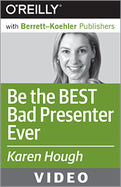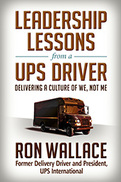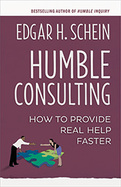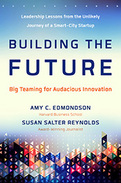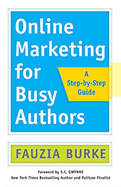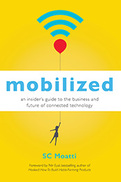Search Results: ""
Results 787-792 of 1358
United Parcel Service (UPS) is a household name that customers and investors alike hold in high regard. Who hasn't been delighted by a right-on-time delivery, one of the 18 million UPS makes every day? Founded over a hundred years ago, UPS has moved steadily up the Fortune 500 while so many other corporations have disappeared. What's the company's secret?
Just ask a driver!
Ron Wallace was a UPS delivery driver for six years before he began rising through the ranks, ultimately becoming president of UPS International. In other companies, that might be extraordinary, but at UPS it's par for the course. UPS has a unique corporate culture. It's like a family. Package loaders call executives by their first names and vice versa. The company almost always promotes from within. Lifetime employment is common. Most employees own UPS stock. Wallace credits the company's success—and his own—to its culture of “we, not me.” As he puts it, working at UPS gave him a PhD in teamwork.
Instead of writing a typical business memoir that celebrates the leader as celebrity, Wallace shares vivid stories that focus on the people he worked with, the challenges they overcame, and the simple principles and practices that make up the UPS way. He exhorts his readers to grow their people, not just their business plans. The leadership style described in this book is simple and direct—and it works. The straightforward and easy-to-understand lessons provide a blueprint for an individual or company to build on past successes and adapt to future challenges. This is a must-read for anyone aspiring to become a great leader.
Just ask a driver!
Ron Wallace was a UPS delivery driver for six years before he began rising through the ranks, ultimately becoming president of UPS International. In other companies, that might be extraordinary, but at UPS it's par for the course. UPS has a unique corporate culture. It's like a family. Package loaders call executives by their first names and vice versa. The company almost always promotes from within. Lifetime employment is common. Most employees own UPS stock. Wallace credits the company's success—and his own—to its culture of “we, not me.” As he puts it, working at UPS gave him a PhD in teamwork.
Instead of writing a typical business memoir that celebrates the leader as celebrity, Wallace shares vivid stories that focus on the people he worked with, the challenges they overcame, and the simple principles and practices that make up the UPS way. He exhorts his readers to grow their people, not just their business plans. The leadership style described in this book is simple and direct—and it works. The straightforward and easy-to-understand lessons provide a blueprint for an individual or company to build on past successes and adapt to future challenges. This is a must-read for anyone aspiring to become a great leader.
Humble Consulting
2016
Consulting in Complex and Changing Times
Organizations face challenges today that are too messy and complicated for consultants to simply play doctor: run a few tests, offer a neat diagnosis of the “problem,” and recommend a solution. Edgar Schein argues that consultants have to jettison the old idea of professional distance and work with their clients in a more personal way, emphasizing authentic openness, curiosity, and humility. Schein draws deeply on his own decades of experience, offering over two dozen case studies that illuminate each stage of this humble consulting process. Just as he did with Process Consultation nearly fifty years ago, Schein has once again revolutionized the field, enabling consultants to be more genuinely helpful and vastly more effective.
Organizations face challenges today that are too messy and complicated for consultants to simply play doctor: run a few tests, offer a neat diagnosis of the “problem,” and recommend a solution. Edgar Schein argues that consultants have to jettison the old idea of professional distance and work with their clients in a more personal way, emphasizing authentic openness, curiosity, and humility. Schein draws deeply on his own decades of experience, offering over two dozen case studies that illuminate each stage of this humble consulting process. Just as he did with Process Consultation nearly fifty years ago, Schein has once again revolutionized the field, enabling consultants to be more genuinely helpful and vastly more effective.
Building the Future
2016
Building the Future
Machiavelli famously wrote, “There is nothing more difficult to take in hand, more perilous to conduct, or more uncertain in its success than to take the lead in the introduction of a new order of things.”
That's what this book is about—innovation far more audacious than a new way to find a restaurant or a smart phone you can wear on your wrist. Amy C. Edmondson and Susan Salter Reynolds explore large-scale systemic innovation that calls for “big teaming”: intense collaboration between professions and industries with completely different mindsets. This demands leadership combining an expansive vision with deliberative incremental action—not an easy balance.
To explore the kind of leadership required to build the future we need, Edmondson and Reynolds tell the story of Living PlanIT. This award-winning “smart city” start-up was launched with a breathtakingly ambitious goal: creating a showcase high-tech city from scratch to pilot its software—quite literally setting out to build the future. This meant a joint effort spanning a truly disparate group of software entrepreneurs, real estate developers, city government officials, architects, construction companies, and technology corporations. By taking a close look at the work, norms, and values in each of these professional domains, we gain new insight into why teaming across fields is so challenging. And we get to know Living PlanIT's leaders, following them and their partners through cycles of hope, exhaustion, disillusionment, pragmatism, and renewal. There are powerful lessons here for anyone, in any industry, seeking to drive audacious innovation.
Machiavelli famously wrote, “There is nothing more difficult to take in hand, more perilous to conduct, or more uncertain in its success than to take the lead in the introduction of a new order of things.”
That's what this book is about—innovation far more audacious than a new way to find a restaurant or a smart phone you can wear on your wrist. Amy C. Edmondson and Susan Salter Reynolds explore large-scale systemic innovation that calls for “big teaming”: intense collaboration between professions and industries with completely different mindsets. This demands leadership combining an expansive vision with deliberative incremental action—not an easy balance.
To explore the kind of leadership required to build the future we need, Edmondson and Reynolds tell the story of Living PlanIT. This award-winning “smart city” start-up was launched with a breathtakingly ambitious goal: creating a showcase high-tech city from scratch to pilot its software—quite literally setting out to build the future. This meant a joint effort spanning a truly disparate group of software entrepreneurs, real estate developers, city government officials, architects, construction companies, and technology corporations. By taking a close look at the work, norms, and values in each of these professional domains, we gain new insight into why teaming across fields is so challenging. And we get to know Living PlanIT's leaders, following them and their partners through cycles of hope, exhaustion, disillusionment, pragmatism, and renewal. There are powerful lessons here for anyone, in any industry, seeking to drive audacious innovation.
If You Want People to Read Your Book,
Writing It Is Only the Beginning
There has truly never been a better time to be an author. For the first time, authors have direct access to the public via the Internet—and can create a community eagerly awaiting their book. But where do new authors start? How do they sort through the dizzying range of online options? Where should they spend their time online and what should they be doing?
Enter Fauzia Burke, a digital book marketing pioneer and friend of overwhelmed writers everywhere. She takes authors step-by-step through the process of identifying their unique personal brand, defining their audience, clarifying their aspirations and goals, and setting priorities. She offers advice on designing a successful website, building a mailing list of superfans, blogging, creating an engagement strategy for social media, and more. By following Burke's expert advice, authors can conquer the Internet and still get their next manuscript in on time.
Writing It Is Only the Beginning
There has truly never been a better time to be an author. For the first time, authors have direct access to the public via the Internet—and can create a community eagerly awaiting their book. But where do new authors start? How do they sort through the dizzying range of online options? Where should they spend their time online and what should they be doing?
Enter Fauzia Burke, a digital book marketing pioneer and friend of overwhelmed writers everywhere. She takes authors step-by-step through the process of identifying their unique personal brand, defining their audience, clarifying their aspirations and goals, and setting priorities. She offers advice on designing a successful website, building a mailing list of superfans, blogging, creating an engagement strategy for social media, and more. By following Burke's expert advice, authors can conquer the Internet and still get their next manuscript in on time.
Mobilized
2016
Mobile has now become such an integral part of how we live that, for many people, losing a cell phone is like losing a limb. Everybody knows mobile is the future, and every business wants in, but what are the elements of mobile success?
SC Moatti, a Silicon Valley veteran who was an executive with Facebook, Trulia, and Nokia, gives businesses and professionals simple ways to thrive in this modern day “gold rush.” More than a book on technology, this is a book about human nature and what matters most to us.
Moatti shows that because mobile products have become extensions of ourselves, we expect from them what we wish for ourselves: an attractive body, a meaningful life, and a growing repertoire of skills. She has created an all-encompassing formula that makes it easy for any business to develop a strategy for creating winning mobile products.
Her Body Rule dictates that mobile products must appeal to our sense of beauty—but beauty in a mobile world is both similar to and different from what it means offline. The Spirit Rule says mobile products must help us address our deepest personal needs. And the Mind Rule explains that businesses that want to succeed in mobile need to continually analyze the user experience so they can improve every iteration of their products.
Moatti includes case studies from mobile pioneers such as Facebook, Uber, Tinder, WhatsApp, and more. The market is full of how-to books for programming apps, but no works examine what is required for success in the mobile era. Until now.
SC Moatti, a Silicon Valley veteran who was an executive with Facebook, Trulia, and Nokia, gives businesses and professionals simple ways to thrive in this modern day “gold rush.” More than a book on technology, this is a book about human nature and what matters most to us.
Moatti shows that because mobile products have become extensions of ourselves, we expect from them what we wish for ourselves: an attractive body, a meaningful life, and a growing repertoire of skills. She has created an all-encompassing formula that makes it easy for any business to develop a strategy for creating winning mobile products.
Her Body Rule dictates that mobile products must appeal to our sense of beauty—but beauty in a mobile world is both similar to and different from what it means offline. The Spirit Rule says mobile products must help us address our deepest personal needs. And the Mind Rule explains that businesses that want to succeed in mobile need to continually analyze the user experience so they can improve every iteration of their products.
Moatti includes case studies from mobile pioneers such as Facebook, Uber, Tinder, WhatsApp, and more. The market is full of how-to books for programming apps, but no works examine what is required for success in the mobile era. Until now.


